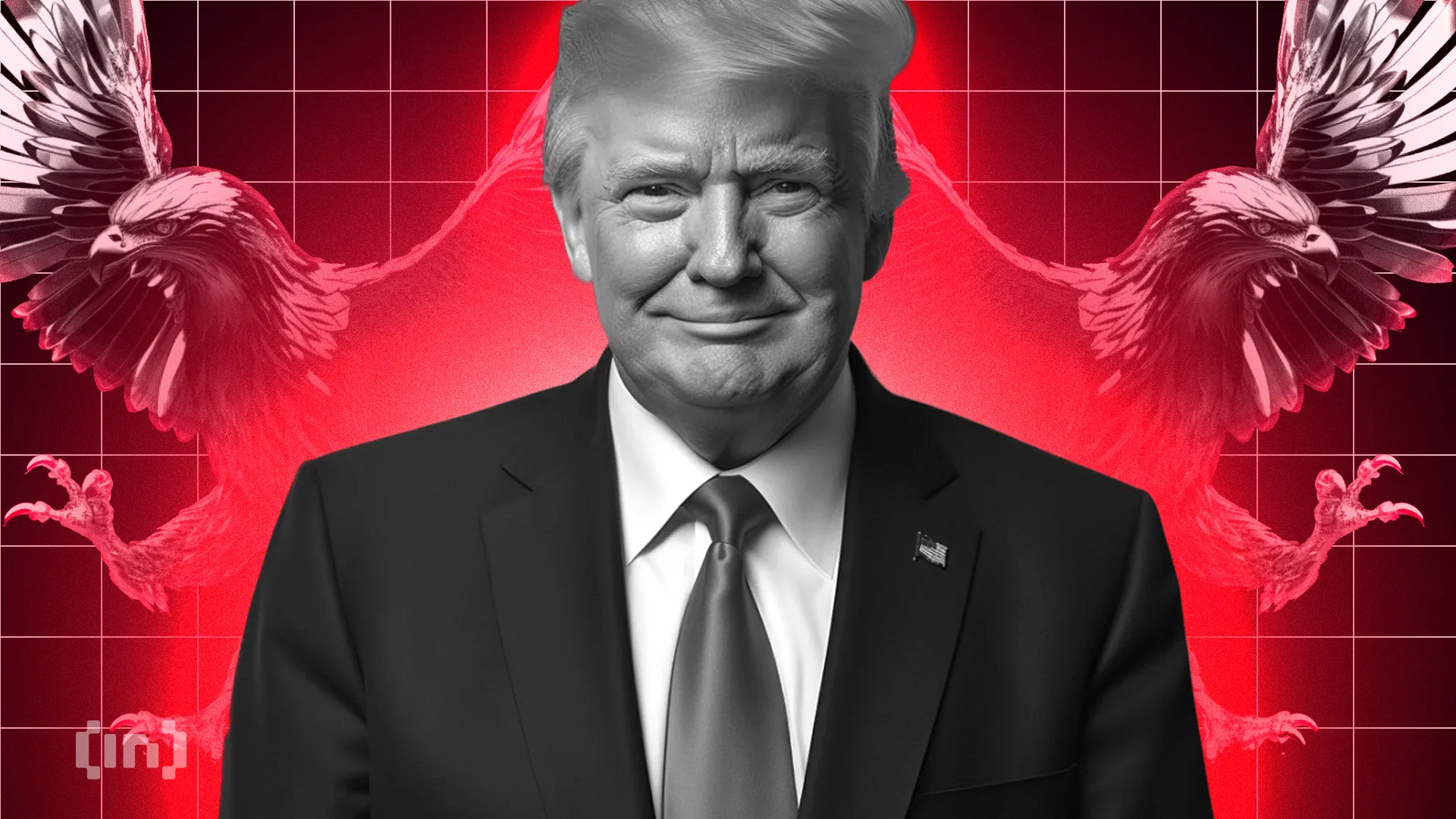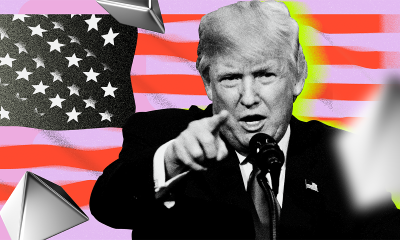Regulation
Biden SC Reform Challenges Donald Trump Immunity Ruling

On Monday, July 29, U.S. President Joe Biden has unveiled a comprehensive three-pronged proposal aimed at reforming the Supreme Court. This move marks a significant policy focus for the remaining months of his presidency. Moreover, the reform aims to challenge former President Donald Trump’s immunity ruling.
Biden’s SC Proposal Pits Against Donald Trump Ruling
Biden’s proposal includes the implementation of term limits for Supreme Court justices, the establishment of a binding ethics code. It also introduces a constitutional amendment that declares presidents are not immune from criminal prosecution for crimes committed while in office.
The amendment, named the “No One Is Above the Law Amendment,” is a direct response to a controversial Supreme Court ruling earlier in July. The ruling declared former President Donald Trump immune from criminal prosecution for the ‘official acts’ he committed during his presidency.
“This decision today has continued the Court’s attack in recent years on a wide range of long-established legal principles in our nation,” Biden stated. Furthermore, he criticized the Supreme Court’s 6-3 ruling on presidential immunity that favored Donald Trump. Biden added, “From gutting voting rights and civil rights to taking away a woman’s right to choose, to today’s decision that undermines the rule of law of this nation.”
In addition, the proposed ethics code is also a reaction to recent scandals involving Supreme Court justices Clarence Thomas and Samuel Alito. They were found to have accepted undisclosed financial gifts that presented significant conflicts of interest. Biden emphasized the need for an ethics code to restore public trust in the judiciary.
Also Read: Gemini Co-Founder Warns of Kamala Harris’ ‘Big Bluff’ to Crypto Industry
Reform Approval Odds & Texas Speech
Over the course of his administration, Biden has been increasingly vocal about his dissatisfaction with the conservative-majority Supreme Court. The Court’s decisions to repeal federal abortion protections, limit affirmative action in college admissions, and strike down Biden’s student debt relief program have been points of contention. These rulings have galvanized Biden to push for substantial reforms.
“I’m going to call for Supreme Court reform because this is critical to our democracy,” Biden declared in a national address from the Oval Office on Wednesday. His reform plan is part of his effort to cement his legacy in the less than six months remaining in his term.
Also, it’s important to note that this announcement comes shortly after Biden withdrew from the presidential race, endorsing Vice President Kamala Harris as his successor. Turning these proposals into law, however, poses a significant challenge.
Congressional approval is required, and given the current partisan split in Congress, achieving this will be an uphill battle. A constitutional amendment, in particular, demands a two-thirds majority approval from both the House and the U.S. Senate, a feat that is significantly difficult to accomplish.
Meanwhile, Biden is set to further elaborate on his reform proposals during a speech at the LBJ Presidential Library in Texas later on Monday. This address is expected to outline the specifics of his plan. Moreover, his speech will rally support for what he views as essential changes to safeguard American democracy.
Also Read: Gemini Co-Founder Warns of Kamala Harris’ ‘Big Bluff’ to Crypto Industry
The presented content may include the personal opinion of the author and is subject to market condition. Do your market research before investing in cryptocurrencies. The author or the publication does not hold any responsibility for your personal financial loss.
Regulation
US SEC and Binance Agree To Pause Legal Proceedings for 60 More Days

The U.S. Securities and Exchange Commission (SEC) and Binance have requested a federal judge to extend the pause in their ongoing legal case for another 60 days.
This decision follows what both parties described as “productive discussions” and will provide more time for further deliberations.
US SEC and Binance Agree To Pause Legal Proceedings
The SEC initially sued Binance in 2023, accusing the exchange and its executives, including former CEO Changpeng Zhao, of violating federal securities laws, who is now the Strategic Advisor to Pakistan’s Crypto Council. The charges centred on Binance’s operation as an unlicensed clearing agency, broker, and exchange.
Additional allegations included the commingling of funds and manipulation of trading volume on Binance.US, its U.S. affiliate. These serious claims led to the ongoing litigation, which was paused multiple times to allow the parties to negotiate and clarify their positions.
Earlier this year, the SEC requested a 60-day pause in the case to allow for discussions around a new crypto task force to clarify how securities law might apply to digital assets. That pause was set to expire on April 14, 2025, but the SEC and Binance have now mutually agreed to extend it for an additional two months.
Reasons for the Continued Binance SEC Pause
The SEC, in its filing, explained that the discussions between both parties had focused on how the work of the newly formed crypto task force could impact the case. The task force, created to address regulatory issues in the cryptocurrency sector, may provide clearer guidance on how U.S. securities law applies to digital assets.
The SEC also pointed out that additional time was needed for authorization from the Commission before making any decisions or revisions in the scope of the case. Binance, for its part, agreed that an extension of the pause was in everyone’s best interest and would help to facilitate the ongoing discussions between the two sides.
“The continued pause is appropriate and in the interest of judicial economy,” the filing stated. Both the SEC and Binance have indicated that they aim to resolve the matter efficiently, without unnecessary delays or complications.
Crypto Task Force’s Role in the Case
The SEC’s newly established crypto task force may shape how digital asset transactions are treated under U.S. law. In a recent statement, Acting SEC Chair Mark Uyeda emphasized the importance of clear regulations for the cryptocurrency market and noted that the task force’s role is to create long-term solutions for regulating crypto trading.
Uyeda also suggested that a “time-limited, conditional exemptive relief framework” might be appropriate to allow innovation in blockchain technology while maintaining regulatory oversight. He encouraged market participants to contribute their views on where such exemptions might be necessary to foster industry growth.
The crypto task force’s efforts may influence how the SEC handles its case against Binance and its broader approach to regulating the digital asset space. The task force aims to ensure that U.S. law can adapt to the rapidly evolving technology behind cryptocurrencies while also protecting investors and ensuring market integrity.
Next Steps in the Legal Proceedings
With the case now paused for another 60 days, the SEC and Binance will continue their discussions and await further guidance from the crypto task force. The next update on the case’s status will come after the 60-day period.
As the pause continues, like the Ripple vs SEC case, stakeholders in the cryptocurrency industry will closely monitor the outcome of the discussions, as the case could set important precedents for future regulatory actions.
The SEC, as a result, has clarified that it is focused on ensuring compliance with securities laws, while Binance has stated its commitment to working within the framework of U.S. regulations.
Disclaimer: The presented content may include the personal opinion of the author and is subject to market condition. Do your market research before investing in cryptocurrencies. The author or the publication does not hold any responsibility for your personal financial loss.
Regulation
US Senators Reintroduce PROOF Act To Set Reserve Standards for Crypto Firms

As crypto regulation gains ground in the US under pro-crypto President Donald Trump, US Senators are taking further steps to strengthen oversight of digital asset firms. Senators Thom Tillis and John Hickenlooper reintroduced the Proving Reserves of Other Funds (PROOF) Act, which aims to create new standards for transparency and fund management in the cryptocurrency sector.
US Senators Reintroduce PROOF Act Bill
According to Eleanor Terrett, US Senators Tillis and Hickenlooper have renewed their push for the PROOF Act, which was first introduced in 2023. The bill responds to concerns raised by the collapse of FTX, where customer funds were reportedly mixed with the company’s own capital and redirected to affiliated firms.
The PROOF Act would prohibit the co-mingling of customer assets by digital asset custodians and exchanges. It sets requirements for monthly third-party reserve checks, which would ensure that firms hold enough reserves to back customer holdings.
Independent auditing firms would perform these checks, sending the results to the U.S. Department of the Treasury.
Mandatory Proof of Reserves Checks
Under the US Senator’s proposed law, all firms offering digital asset custody or exchange services must undergo monthly Proof of Reserves (PoR) inspections. These checks would verify that firms hold the assets they claim to possess on behalf of their clients.
PoR uses cryptographic tools like Merkle trees and zero-knowledge proofs to verify balances without revealing user data. To ensure transparency, the inspection reports would be made public through the Treasury Department. If a company fails to comply, it will face civil fines that increase with repeated violations.
Although some firms have previously voluntarily shared proof of reserves information, these practices have been inconsistent and often lacked third-party verification. The PROOF Act would create a standardized process across the industry.
Preventing Fund Mismanagement in the Crypto Industry Through The PROOF Act
The US Senators’ renewed effort to pass the PROOF Act follows the financial failure of several crypto companies, most notably FTX. Reports showed that FTX moved customer deposits to its sister firm, Alameda Research, without proper disclosure or reserves, contributing to a major loss of trust in the sector.
Lawmakers aim to reduce the risk of mismanaged or missing funds by introducing strict reserve reporting requirements. The bill, as a result, intends to give customers more confidence that their digital assets are safe and properly accounted for by crypto firms.
The legislation also encourages more responsible behaviour from digital asset institutions by requiring them to follow clearly defined standards. These standards subsequently support regulatory oversight and prevent future financial harm to customers.
SEC Leadership and Regulatory Developments
The reintroduction of the PROOF Act follows Paul Atkins’s appointment as the new Chair of the Securities and Exchange Commission (SEC) in the United States. The Senate endorsed Atkins with a 52 to 44 majority in acknowledging his position on precise crypto regulations.
As a result, the Division of Corporation Finance of the SEC published guidance for crypto issuers as a follow-up to Atkins’ confirmation. The guidance also involves disclosure concerning business models and financial statements and risks associated with digital assets that fall under the definition of securities.
Subsequently, Senator Cynthia Lummis, a pro-Bitcoin legislator, has corroborated the development while acknowledging optimism about the future under Atkins. She stated that from her conversation with Atkins, she became confident in his handling of digital asset regulation.
Disclaimer: The presented content may include the personal opinion of the author and is subject to market condition. Do your market research before investing in cryptocurrencies. The author or the publication does not hold any responsibility for your personal financial loss.
Regulation
US President Donald Trump Signs First Crypto-Related Bill Into Law; Report

US President Donald Trump has signed a joint resolution that will repeal an IRS rule affecting decentralized finance (DeFi) platforms.
This legislation, which has passed through both the Senate and the House, aims to prevent the IRS from enforcing tax reporting requirements on DeFi protocols. The move is seen as a key development in crypto regulation.
Donald Trump Signs First Crypto-Related Bill Into Law
According to ex-Fox journalist Eleanor Terret, the US president Donald Trump has signed the resolution into law imminently.
The bill marks the first time a US president will sign a crypto-related bill into law. It comes after weeks of legislative activity, during which both chambers of Congress passed versions of the resolution with broad bipartisan support. The Senate passed the final version of the bill on March 26 with a 70–28 vote after the House approved it on March 11.
Overview of the Repealed IRS Rule
The IRS DeFi broker rule, introduced during the Biden administration, was designed to expand existing tax reporting requirements to DeFi platforms.
Consequently, these platforms are required to report gross proceeds from crypto transactions and provide identifying details about the parties involved. The rule was part of a broader effort to close tax gaps and improve oversight in the cryptocurrency sector.
However, the rule drew criticism from the crypto industry and some lawmakers. Opponents argued that the decentralized structure of DeFi protocols makes it difficult or impossible to gather user data or file tax reports. Many, however, said that enforcing such requirements would hinder development and discourage innovation in the blockchain space.
Congressional Action and Political Support
The resolution to overturn the IRS rule passed with broad support in both chambers of Congress. Although a similar resolution passed in the Senate earlier in March, a revised version originated in the House due to rules governing tax-related legislation. The final Senate vote on March 26 completed the process and sent the resolution to President Donald Trump.
Senator Ted Cruz, who introduced the resolution, stated that the IRS rule was “an attack on emerging technologies that could transform financial systems.” As a result, the legislation received support from lawmakers who emphasized the need for clear, innovation-friendly policies on crypto regulation.
David Sacks, the White House’s AI and crypto advisor, confirmed President Donald Trump supports eliminating the rule. Sacks said the administration aims to protect decentralized technologies from what it sees as overregulation.
Implications After Donald Trump Sign
Once signed into law by Donald Trump, the resolution will exempt DeFi platforms from complying with certain IRS tax reporting obligations. This will, as a result, give developers and operators of decentralized protocols more freedom to operate without facing regulatory penalties for noncompliance with rules they cannot practically follow.
The repeal also signals a shift in how federal policymakers view crypto technologies. With this bill, US President Donald Trump will formalize a new stance on crypto regulation that emphasizes technological growth and decentralized innovation.
Industry groups like the DeFi Education Fund have supported the resolution and called it a step toward more practical crypto policy in the United States.
Disclaimer: The presented content may include the personal opinion of the author and is subject to market condition. Do your market research before investing in cryptocurrencies. The author or the publication does not hold any responsibility for your personal financial loss.
-

 Market14 hours ago
Market14 hours agoPi Network Roadmap Frustrates Users Over Missing Timeline
-

 Altcoin23 hours ago
Altcoin23 hours agoEthereum ETFs Record $32M Weekly Outflow; ETH Price Crash To $1.1K Imminent?
-

 Market15 hours ago
Market15 hours agoMEME Rallies 73%, BONE Follows
-

 Ethereum21 hours ago
Ethereum21 hours agoEthereum Price Stalls In Tight Range – Big Price Move Incoming?
-

 Market13 hours ago
Market13 hours agoSolana (SOL) Price Rises 13% But Fails to Break $136 Resistance
-

 Altcoin18 hours ago
Altcoin18 hours agoXRP Price History Signals July As The Next Bullish Month
-

 Market21 hours ago
Market21 hours agoHow $31 Trillion in US Bonds Could Impact Crypto Markets in 2025
-

 Bitcoin20 hours ago
Bitcoin20 hours agoWhat Does This Mean for Altcoins?























✓ Share: